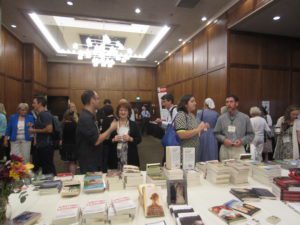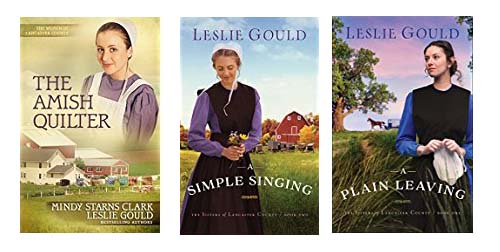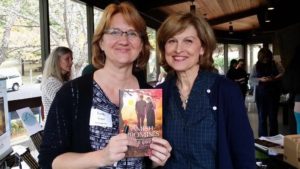by Leslie Gould
Although writing can be a solitary pursuit, the results are better if it’s not—at least not entirely. Establishing a support system will help move your writing forward.
My debut novel was published 15 years ago. Over the years—and 30 novels—my support has varied widely, depending on my needs. Following are some of the things that have worked for me.
I’ve been involved in five different groups over the years. Each provided just what I needed: deadlines, encouragement, and constructive criticism. You need readers who can read a first or second draft in a short time and give you feedback. Joining a critique group should be one of the first steps in any writer’s journey! (To learn more about critiquing fiction, join me for a Tuesday evening Nite Owl: “Hook Your Reader on the Very First Page” at the OCW Summer Conference.)
2. Writing conferences
If you’ve gone to the OCW summer conferences in the past, or are signed up for the August 2018 one, you know how important this is! When I attended my first OCW summer conference in 2002, I breathed a sigh of relief. I’d found my people! I also found my agent, a critique group, and endless resources!
3. Experts
We don’t always have the expertise for what we write about—even after we’ve done our research. A variety of experts have read all or parts of many of my novels, depending on the topic, including a pastor, psychologist, horse trainer, insurance adjustor, a missionary, and a French citizen. A friend who grew up Amish reads my Anabaptist stories, and my husband checks my medical and military scenes. (I compensate experts for fact checking, when appropriate.)
4. Professional editors
Before you send off a manuscript to an agent or publisher, consider hiring a professional freelancer to give it a content edit. I didn’t do this before I sent my first contracted manuscript off, but I wish I had. I did do this midway through my career when I was on a tight deadline and wanted to make sure that I’d gotten a novel’s structure and character development right. It was worth every penny.
5. Proofers
The more mistakes you can find early in the process the better. I’ve had the majority of my manuscripts proofed before I sent them off to my editors. And I’ve regretted the times I didn’t.
If you find it difficult to be productive in your writing time, consider recruiting someone to help keep you accountable. Find another writer or a person in your life you can report your word count to each week (or day). Or meet with a writer friend for an extended work session—a few hours at a coffee shop or a beach house for a weekend.
7. A “street team”
As a published author, I have a street team of 30 readers who help promote my novels, which has more to do with marketing than writing. However, they also pray for me, which has a lot to do with writing! (I also pray for them.) If you’re not a published author, consider asking key people to pray for you and your writing.
However, they also pray for me, which has a lot to do with writing! (I also pray for them.) If you’re not a published author, consider asking key people to pray for you and your writing.
Your book is your creation, but you still need support from others to make it the best it can be. Don’t be afraid to ask for what you need, and then give back and support others in return!
 Leslie Gould is the #1 best-selling and Christy Award-winning author of 30 novels including The Amish Midwife, The Amish Bride, and Courting Cate. She writes contemporary, Amish, and historical/time-slip stories. She received her Master of Fine Arts degree from Portland State University and teaches writing at Warner Pacific University. Leslie was the 2013 recipient of the OCW Cascade Trailblazer Award. Leslie will teach a workshop, “Five Keys to Unlocking the Past: Historical Fiction and Time Slip” and lead a small-group critique at the upcoming 2018 Oregon Christian Writers Summer Conference.
Leslie Gould is the #1 best-selling and Christy Award-winning author of 30 novels including The Amish Midwife, The Amish Bride, and Courting Cate. She writes contemporary, Amish, and historical/time-slip stories. She received her Master of Fine Arts degree from Portland State University and teaches writing at Warner Pacific University. Leslie was the 2013 recipient of the OCW Cascade Trailblazer Award. Leslie will teach a workshop, “Five Keys to Unlocking the Past: Historical Fiction and Time Slip” and lead a small-group critique at the upcoming 2018 Oregon Christian Writers Summer Conference.









